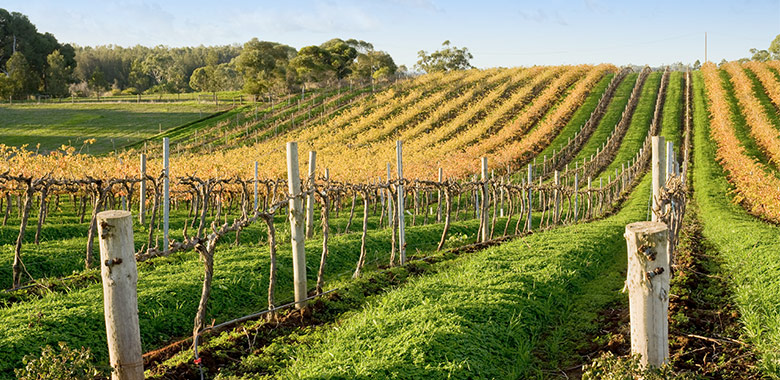
Wine
Biodynamic – going beyond organic
If someone told you that filling a cow’s horn with dung and planting it at a certain phase of the moon would help your vines to grow, you’d probably think they were bonkers. Far out it may indeed sound, but this is one of the central steps in biodynamics, a form of organic viticulture that’s being embraced by an increasing number of Australian wineries. While it might sound like a theory cooked up by modern hippies, biodynamics actually has its origins in Europe over 90 years ago.
Let’s set the scene.
It’s 1924 in Silesia, Germany (now part of Poland) and a group of farmers has gathered to hear a series of lectures by Austrian philosopher Rudolf Steiner. The farmers are looking for an alternative to chemical fertilisers, which they believe have caused extensive damage to their soil and brought poor health to their livestock and crops.
Steiner proves sympathetic as he reveals a system of agriculture that shuns chemicals and treats the farm as an individual, self-contained entity. Rather than focus on the health of individual plants, Steiner’s system teaches that good health requires that the entire eco-system in which the plant exists be thriving. This includes the other plants, the soil, the animals and even the humans who are working the land.
The system he describes he calls biodynamics. By taking away all artificial fertilisers, herbicides and pesticides, Steiner presented one of the earliest models of organic farming. However, it’s the next steps that really separate biodynamics from organics (and it’s at this point that I imagine some of the listening farmers’ eyebrows began to rise).
Steiner claims that for this environment to truly blossom, a series of field and compost preparations needs to be added. These preparations, nine in total, are man-made solutions, derived from nature, that are labelled 500 through to 508. To the conventional farmer, these preparations may appear somewhat far-fetched. For example, ‘500’ is made by filling cow horns with cow manure, which are then buried over winter to be recovered in spring. A teaspoon of the manure is then mixed with up to 60 litres of water, which is stirred for an hour, whirled in different directions every second minute. ‘501’ also requires a cow horn, this time filled with crushed quartz. It is buried over summer and dug up late in autumn, then mixed the same way as 500.
Stretching his credibility even further in the eyes of the pragmatic farmer, Steiner brings a spirituality to his teachings by suggesting the growth cycles of the farm are influenced by astrological forces.
Decisions such as when to spray the preparations, when to weed and when to pick should all be made according to a calendar that details the phases of the moon and stars.
“Hocus-pocus!” you may very well cry.
Not so, according to the ever-increasing number of wine producers in Australia and internationally who have embraced biodynamics. Choosing an environmentally sustainable approach to viticulture is obviously to be applauded in these times of climate crisis. However, talk to biodynamic producers and you’ll find that superior wine quality is the number one motivation for being biodynamic.
At South Australia’s Cape Jaffa, the Hooper family has been using biodynamic principles for many years and their conviction in its effectiveness is complete. “We believe that cultivating the vines in this way is what allows them to achieve balance within their environment. Achieve balance, and the vines are able to fully express themselves – leading to a wine that bares a true and remarkable resemblance to its environment,” says Derek Hooper.
The Buttery family of Gemtree in McLaren Vale are also converts. Since their biodynamic beginnings in 2007 they say they can now “see a noticeable difference in the health of our vineyard and quality of our fruit.”
A fellow McLaren Vale winemaker, David Paxton of Paxton wines says, “Biodynamics is the most advanced form of organic farming. It uses natural preparations and composts to bring the soil and the vine into balance, resulting in exceptionally pure and expressive fruit.”
The proof is in the tasting, however, so next time you’re looking for a new wine to try, why not put biodynamics to the test and see if you can taste the natural difference?